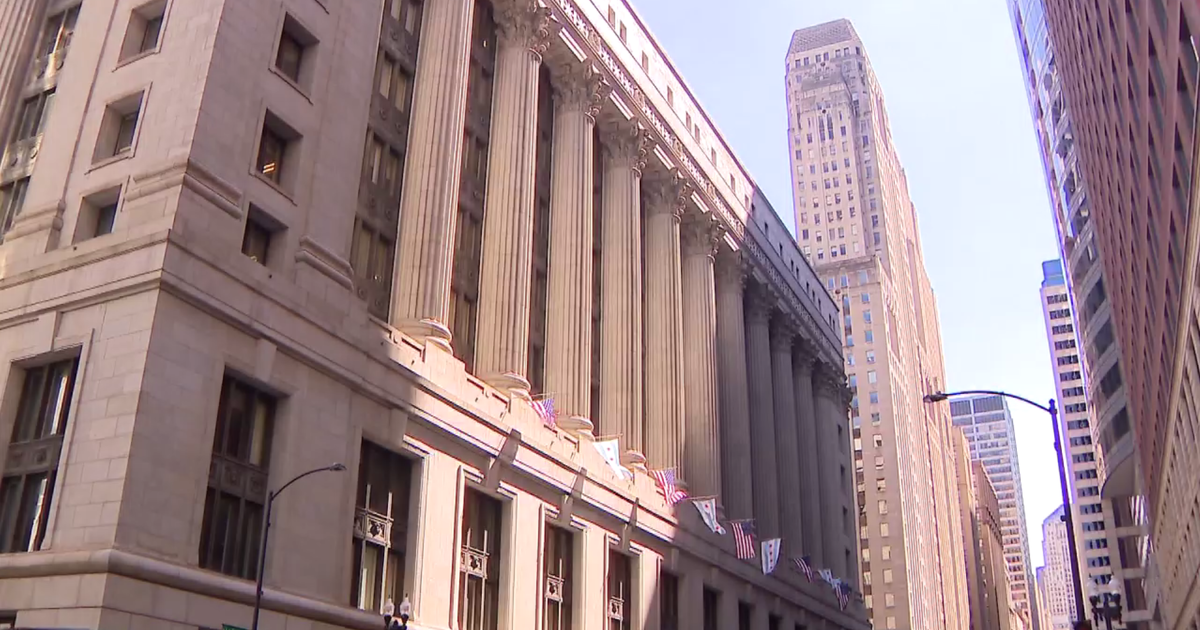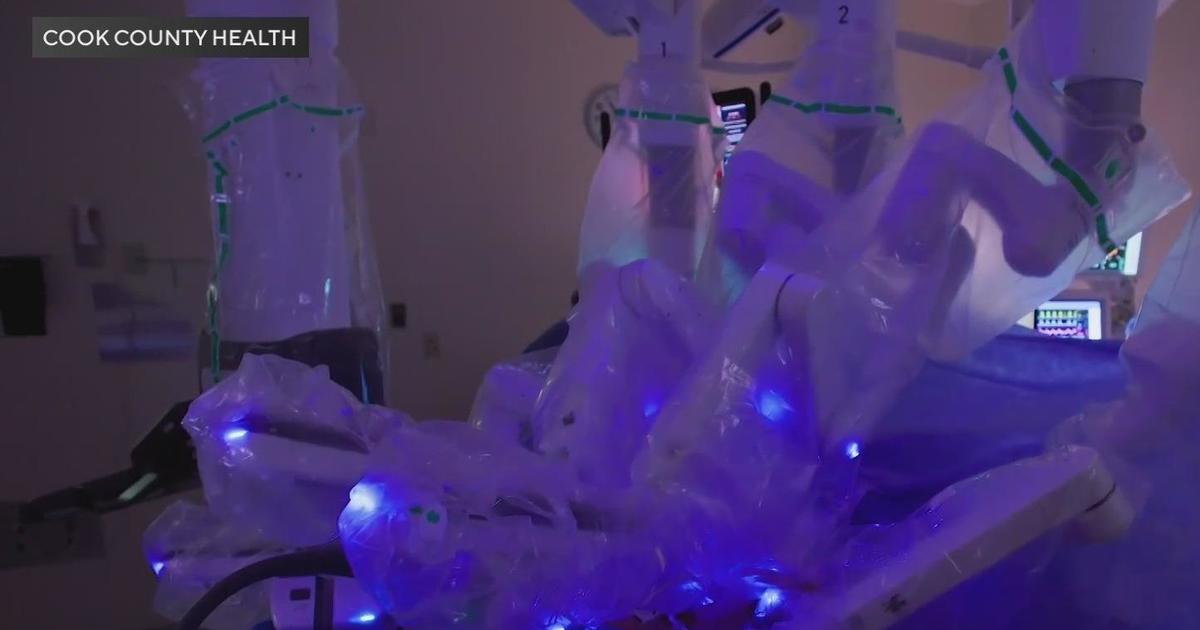School Board, Union Reject Arbitrator's Report On Teachers Contract
UPDATED 07/18/12 - 8:59 p.m.
CHICAGO (CBS) -- The Chicago Board of Education and the Chicago Teachers Union have both unanimously rejected an independent arbitrator's suggestions on how to end the contract stalemate with public school teachers.
School board members said the district simply cannot afford the recommended raises in the report, while teachers said the report did not significantly address issues like how to reduce class sizes, or how to plan out the longer school day sought by the Emanuel administration.
CBS 2's Dana Kozlov reports the Board of Education went into executive session Wednesday afternoon to consider arbitrator Edwin Benn's suggestion that teachers should get a pay raise of nearly 15 percent next year, and about 35 percent over four years. They emerged less than an hour later and voted 6-0 to reject that report.
After the vote, board president David Vitale said, "Quite simply the board does not have the resources to accept the fact-finder's recommendation," echoing the sentiments of Mayor Rahm Emanuel and Chicago Public Schools CEO Jean-Claude Brizard, who also have said CPS cannot afford the raises suggested by Benn.
LISTEN: WBBM Newsradio's Bob Roberts Reports
Podcast
Less than an hour after the board shot down Benn's report, the Chicago Teachers Union's House of Delegates also unanimously rejected it, although for different reasons.
CBS 2's Roseanne Tellez reports, while teachers supported the arbitrator's suggested raises, CTU President Karen Lewis said the report did not sufficiently address other concerns teachers have.
"There are many other issues related to improving the education of Chicago's children that have yet to be resolved. The school board's failure to offer us fair compensation, or even consider measures to retain qualified and experienced teachers, paraprofessionals and clinicians in our schools are very serious issues," Lewis said. "However, those do not trump our concerns about reducing class size so that we can adequately address the varying education needs of each child."
She also said any plan for a longer school day must include plans for art, music, foreign language, and physical education classes.
The votes to reject arbitrator Edwin Benn's 61-page report essentially place CPS and the union back at square one.
School officials had hoped the recommendations would help both sides settle on a contract, but it did just the opposite.
"I think we both feel like we've won something in the process, [but] it did not solve the problem, and I believe we're both ready to move on," Vitale said.
Both sides must move quickly, if they want to avoid a teachers' strike.
Asked if talks will get more serious now that both the district and the union have rejected the arbitrator's recommendations, Brizard said, "It has been serious, and that's the point I have been trying to make from day one. It has been serious. Now, of course, we have a time crunch, because I want to get this done before school actually opens."
That happens in less than a month for about a third of the city's public schools. Schools on the "Track E" calendar begin classes on Aug. 13, while other schools start on Sept. 4.
Benn said both sides share in the blame for the contract stalemate. He said CPS should not expect teachers to work a school day that is 20 percent longer without an adequate raise, but noted the teachers got a great deal in their 2007 contract, just before the economy went in the tank, so they can't expect similarly generous deal this time around.
"This is a volatile labor dispute in a toxic collective bargaining relationship. The different approaches of the parties have resulted in a confrontation that has all the makings of a full-scale labor-management war," Benn wrote.
"At present, these parties are worlds apart and if the parties do not do more to compromise their positions, a crippling strike is inevitable. If that happens, everyone will lose," he added.
Benn said the board has to pay teachers adequately for a longer day – and should have known that going into contract talks.
But Benn also noted times have changed since the last teachers' contract in 2007.
"For its part, the Union is coming off an extremely lucrative contract for the employees for the period 2007-2012 — even with the 4% wage increase withheld for 2011-2012 — as its terms were negotiated prior to the devastation caused by the Great Recession," Benn wrote. "The Union cannot ignore the fact that its membership immensely benefited from the terms of that lucrative contract and cannot expect the same type of benefits to continue when the economic conditions are far worse now than when the 2007-2012 agreement was negotiated."
Benn's report suggested a 2.25 percent cost-of-living adjustment and a 12.6 percent pay hike for teachers next year, for an overall raise of 14.85 percent. Over the next four years, the report recommended an average 35 percent raise for teachers.
Such a raise would be a massive burden for CPS, which has budgeted only for a 2 percent raise next school year, and plans to raise its property tax levy to the legal limit, as well as drain its entire reserve fund to plug a $665 million budget hole next year. School officials estimate, in the first year alone, Benn's recommended raises would cost the district $330 million.
But teachers insisted pay raises are only one factor in contract talks. Lewis pointed to the need to reduce class sizes, and ongoing disputes about how teachers and students should spend the extra time during the longer school day, as well as whether paraprofessionals, clinicians and others should get the same raises as teachers.
Union vice president Jesse Sharkey also said the union wanted Benn to accept proposals to provide job security for hundreds of veteran teachers who were laid off last year.
Whatever stumbling blocks remain in front of them, the two sides must now hash out a compromise without an arbitrator if they are to get a deal done before the school year starts.
"It's time for us to move beyond the fact-finding report, and into collective bargaining negotiations, which we both have agreed to do, and we will do so immediately," Vitale said.
Both sides will sit down again on Thursday to resume traditional contract talks, without a mediator.
With both sides rejecting Benn's report, however, 30-day clock has started on a cooling-down period before teachers can legally strike, making Aug. 18 the first day teachers could walk off the job, although they must also first give 10 days' notice of a strike.
Vitale said the board will be "aggressive" in seeking a quick resolution to the contract dispute, to avoid a strike.
"We expect to be back at the bargaining table immediately, and to work with the union towards those ends," Vitale said. "I believe that both sides understand that the resources available to the district are finite."
Lewis said the Emanuel administration has done everything in its power to tilt contract talks in their favor – including successfully pushing for the state law that required a vote by 75 percent of all union members to authorize a strike, as well as requiring the independent arbitrator's report to be issued before any strike could take place.
She said, now that both sides have rejected Benn's report, they must decide between themselves what is a fair compromise.
"This contract – and there will be a contract, make no mistakes – needs to be settled at the table, and not by an independent fact-finder, or arbitrator, or anybody else," Lewis said.
Benn noted that the impact of a strike on students would go beyond the lost time in the classroom. Noting the city's recent problems with murders, Benn warned that a strike would effectively put many of the city's 400,000 public school students on the streets, and "Chicago's streets have not been kind to CPS students."
Benn pointed to news reports that 319 CPS students were shot last school year, 24 of them fatally.
"Every possible effort must still be made by the parties to make certain the students are back in school for the start of the 2012-2013 school year and not on the streets because of a strike resulting from the parties' inability to come to terms," Benn wrote.



